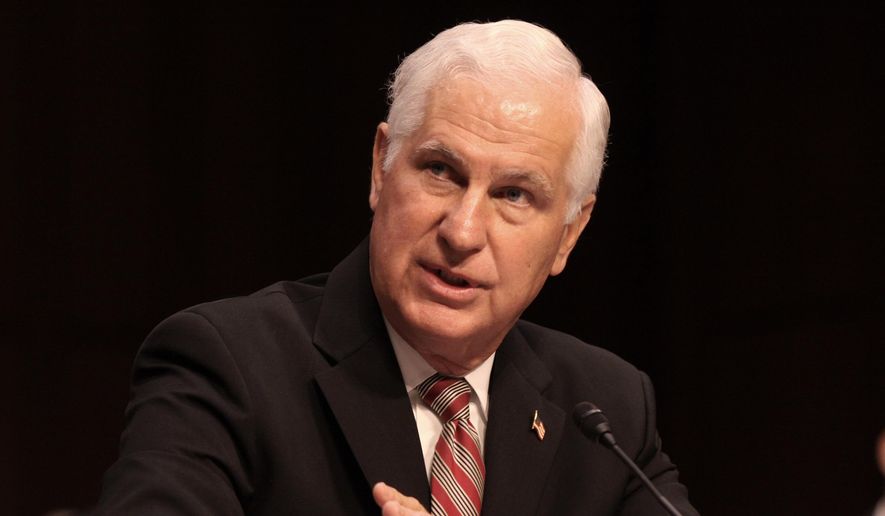The Department of Veterans Affairs’ Office of Inspector General has started a formal investigation into the nearly $300,000 relocation bonus paid to a senior VA official when she was transferred from Washington to lead the Philadelphia regional office last year.
In a letter to House Veterans’ Affairs Chairman Jeff Miller, deputy Inspector General Richard Griffin said his office is “reviewing the documentation” of the $288,206 in payments to Philadelphia VA Director Diana Rubens. She received about $250,000 more than the average relocation expense normally paid to VA officials.
Mr. Miller, Florida Republican, asked for an investigation earlier this month, including a “broader review” of whether the VA was abusing its program for awarding relocation expenses.
There are also questions being raised about the sale of Ms. Rubens’ house in Alexandria, Virginia, last year to facilitate her move. According to property records, she sold it in July 2014 for $770,000. But in February, the house was sold again for $692,500 — at a time when real estate prices in the region are rising solidly.
Property records in Delaware County, Pennsylvania, indicate that Ms. Rubens purchased a home in Havertown in September 2014 for $589,000.
The VA said its payments to Ms. Rubens were appropriate.
“Ms. Rubens is one of [the agency’s] most experienced and highly skilled senior leaders, having led the operations of VBA’s entire field organization for many years,” the VA said in a statement. “In filling the position of the director of the Philadelphia Regional Office, VA recognized that its very best leader was needed to address the complex challenges and issues faced by the office and its employees.”
Ms. Rubens also was among the VA officials who received the agency’s top performance bonuses while veterans were facing long waits for disability payments in 2011.
When the backlog of disability claims grew by nearly 300,000 in 2011, the VA granted its top performance award, a sum of $23,091, to both Ms. Rubens and to Lois Mittelstaedt, who were two top deputies of VA Undersecretary for Benefits Allison Hickey.
Thomas Lastowka, then-director of the VA’s Philadelphia regional office, got the same $23,091 bonus that year despite the backlog of disability claims in Philadelphia doubling between 2010 and 2011.
House and Senate lawmakers also turned up the heat on the VA Monday during a field hearing in Tomah, Wisconsin, to review reports that physicians were prescribing an unusually high level of painkillers to veterans at the regional VA medical center.
The deaths of veterans Thomas Baer, 74; Jason Simcakoski, 35; and Jacob Ward, 27, have prompted three federal probes. Sen. Ron Johnson, Wisconsin Republican and chairman of the Senate Homeland Security and Governmental Affairs Committee, led the delegation of lawmakers.
Ryan Honl, a former VA employee who blew the whistle on the drug-prescribing practices at Tomah, blamed “a culture that lacks accountability.”
“Rogue doctors, and those who supervise them, will never care what the rules are … if they aren’t held accountable,” Mr. Honl said.
Also Monday, an inspector general said the VA failed to administer a drug test to about 70 percent of VA employees hired in 2013 who were supposed to be tested.
Of 22,600 employees hired into testing designated positions in fiscal 2013, about 15,800 never received a pre-employment drug test, the report found.
The VA also failed to properly test its employees after they were hired. Of the more than 3,000 employees selected for random drug testing in fiscal 2013, only about 68 percent were actually tested. In addition, the VA erroneously designated more than 13,000 employees for testing who were not in positions that required random monthly tests.
Only about a third of those employees who tested positive for drugs were referred to get help at the VA, the report said.
“VA has little assurance that this program is performing as intended to identify and eliminate illegal drug use in its workforce,” the report said. “Since VA’s workforce is expected to grow significantly with the passage of the Veterans Access, Choice, and Accountability Act of 2014, VA needs to take actions to address weaknesses in its Drug-Free Workplace Program immediately.”
Investigators recommended the VA increase its oversight of the drug testing program by ensuring full compliance with both random and pre-employment testing.
The Drug Free Workplace Program was established in 1988 and requires the VA to pick 285 employees each month for random drug testing. The VA spent about $1.4 million in fiscal 2013 on its drug testing program, the report said.
⦁ Jacqueline Klimas contributed to this report.
• Dave Boyer can be reached at dboyer@washingtontimes.com.




Please read our comment policy before commenting.